Search Results for: Fish
Skip to resultsCan’t find what you’re looking for? Visit our FAQ page.
8,281 results for: Fish
-
 Animals
AnimalsThe mysterious, extinct ‘Fuegian dog’ was actually a semi-tame fox
Historic European accounts long described the canids as domesticated dogs. A new study suggests that’s probably not true.
By Jake Buehler -
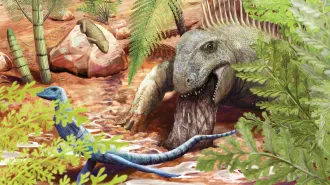 Paleontology
PaleontologyFossilized vomit reveals 290-million-year-old predator’s diet
The regurgitated material from before the time of dinosaurs provides a rare window into the feeding habits of a prehistoric hunter.
By Jay Bennett -

-
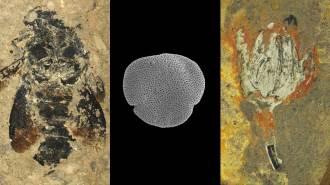 Paleontology
PaleontologyThese ancient bumblebees were found with their pollen source
Insects have long pollinated plants, but evidence of ancient pairing is rare. Fossils now show bees and linden trees goes back 24 million years.
-
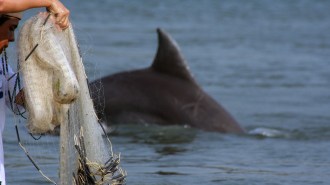 Animals
AnimalsDolphins and humans team up to catch fish in Brazil
In Brazil, where humans and dolphins fish in tandem, cooperation both within and between species is essential for the longstanding tradition.
-
 Ecosystems
EcosystemsLike flyways for birds, we need to map swimways for fish
Mapping fish migration routes and identifying threats is crucial to protecting freshwater species and their habitats, ecologists argue.
-
 Animals
AnimalsA sea turtle boom may be hiding a population collapse
In Cape Verde, conservation has boosted the sea turtle population 100-fold — but the male-female balance is way off.
-
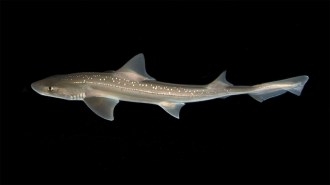 Animals
AnimalsIs that shark ticking? In a first, a shark is recorded making noise
The ocean can be a symphony of fish grunts, hums and growls. Now add tooth-clacking sharks to the score.
By Susan Milius -
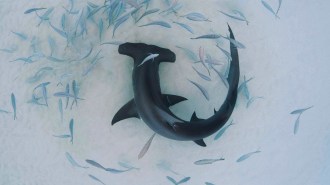 Animals
AnimalsHammerhead sharks’ diets may affect if they roam or stay home
Understanding hammerhead sharks’ food preferences could aid efforts to protect the critically endangered fish.
-
 Physics
PhysicsHere’s how Rudolph’s light-up nose might be possible
Simple chemistry could give the reindeer his famously bright snout. But physics would make it look different colors from the ground.
-
 Anthropology
AnthropologyA 104-centimeter-long hair could rewrite recordkeeping in Inca society
Analysis of the hair used in a knotted device reveals the owner’s simple diet. That suggests commoners, not just the elite, kept records in Inca society.
-
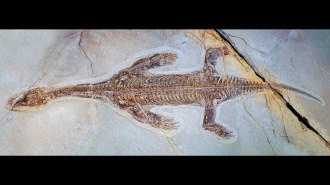 Paleontology
PaleontologyAn ancient reptile’s fossilized skin reveals how it swam like a seal
A reptile fossil is the first of its kind with skin and partially webbed feet, possibly showing how later species like plesiosaurs adapted to water.